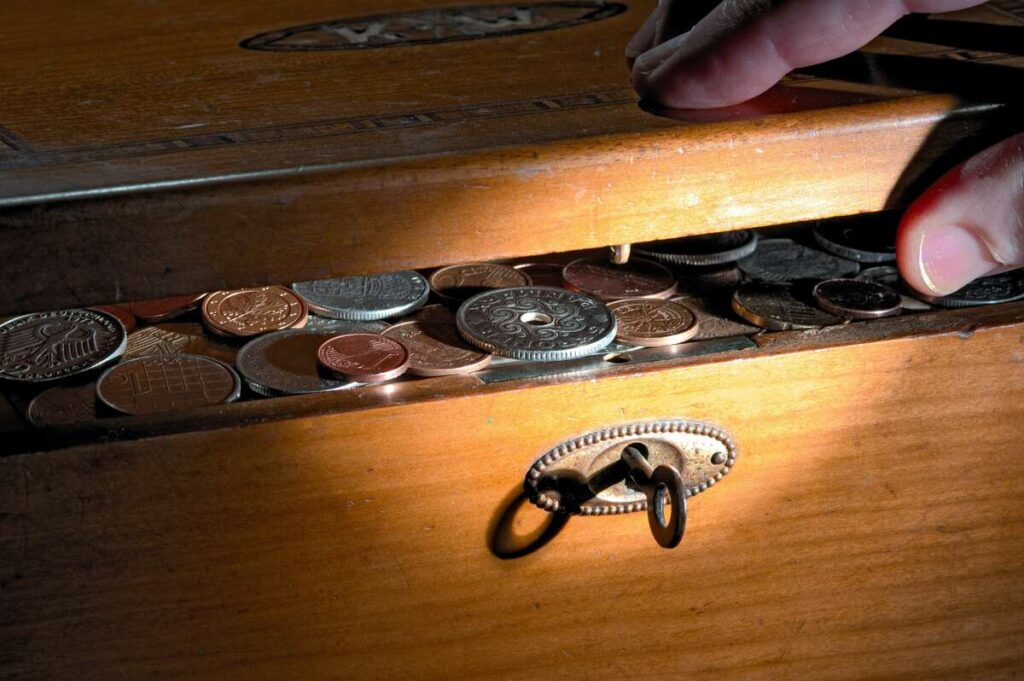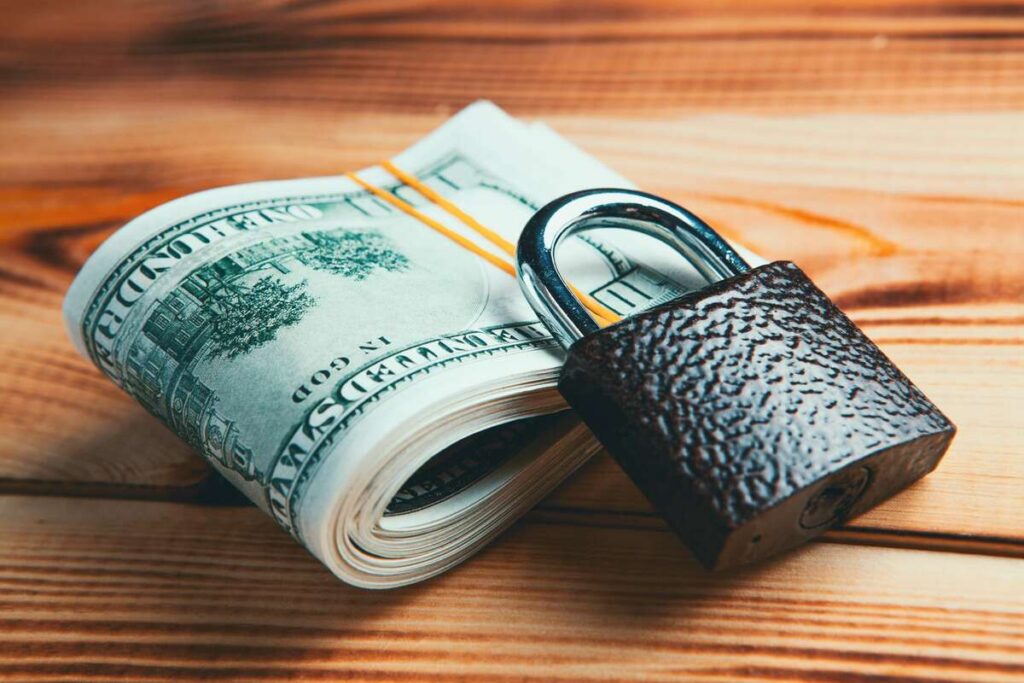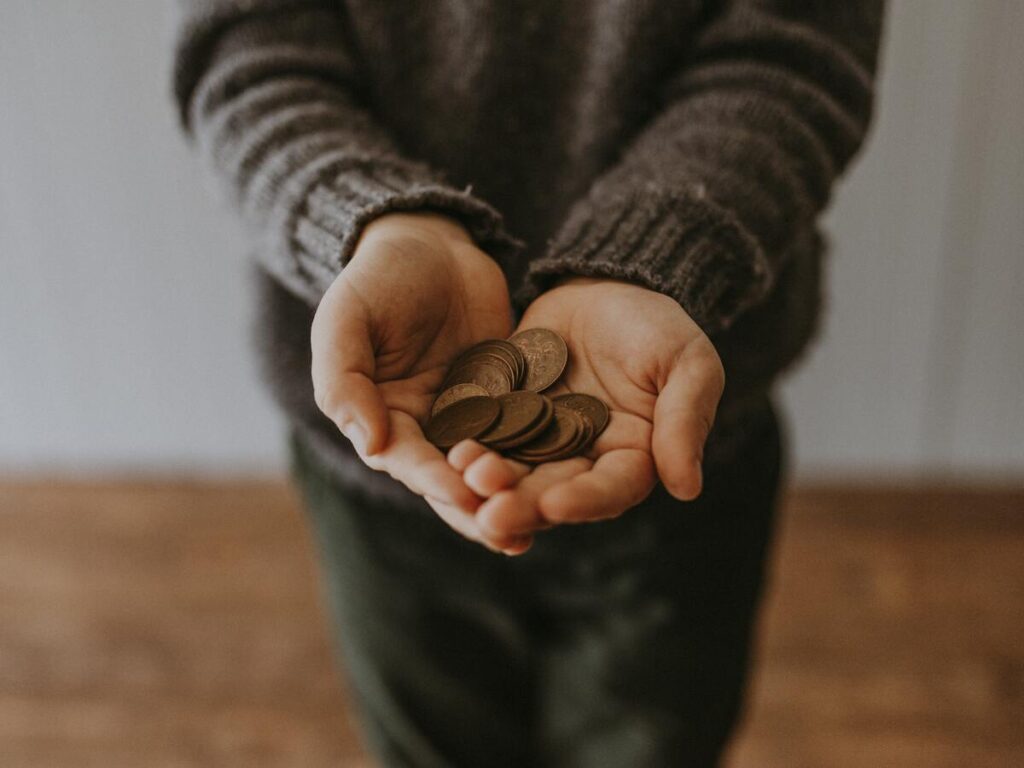Jesus talks about money and wealth perhaps more than any other topic in the New Testament. Check out some of his most scathing statements when it comes to worshipping wealth over God.
Matthew 6:24, Luke 16:13: “No one can serve two masters. Either you will hate the one and love the other, or you will be devoted to the one and despise the other. You cannot serve both God and money.
Matthew 19:24: "And again I say to you: It is easier for a camel to pass through the eye of a needle, than for a rich man to enter into the kingdom of heaven."
Jesus teaches numerous parables that involve money and talents, often warning about the dangers of putting money and material wealth above following God. The apostle Paul adds his remarks in 1 Timothy 6:10, “For the love of money is a root of all kinds of evil.” So is money inherently evil? As Christians, is our duty to shun all kinds of material wealth?
No! In fact, I believe that God actually wants us to have money. Money itself is not bad or evil—it is part of Creation. The only caveat is that we just need to have the proper understanding of how money influences our lives.

Money Reveals Your Heart
“For where your treasure is, there your heart will be also,” says Matthew 6:21.
In pop culture, the heart is synonymous with identity or innermost being. If you tell someone that you are “giving them your heart,” it means that you are giving them access to your inner thoughts and emotions. If you hear someone say “I have a heart for the poor,” it means that they identify with the poor and care about them. The heart is used as a metaphor for your inner being all throughout Scripture.
What we see as valuable in the world (i.e. “treasure”) ultimately reveals our heart, identity, or innermost value. Money, by definition, represents some universal value in the world—instead of bartering eggs, tools, or our skills and time, we agree to exchange paper bills, metal coins, or numbers on a phone app. And because money is just an abstraction, this verse in Matthew 6:21 can be rephrased to explain, “where you spend your treasure… there your identity and innermost values are also.”
If you spend a lot of money on vacations and traveling, it means you identify as a person who is well-traveled or has lots of different lived experiences.
If you spend a lot of money on new clothes and shoes, it means you value fashion and self-expression.
If you don’t spend a lot of money… well, you’re not quite off the hook. Keep most of your money in the bank? Chances are that you value future security or frugality. Do you save incessantly and always invest what you can? There’s a high chance you value delayed gratification, preparedness, or a sense of being in control.

It’s clear that whatever you do with your money reveals your priorities and values. But less obvious is the fact that the way you view and feel about money also reveals where your inner treasures are. To provide a few more real-life examples…
Do you overspend on your credit or live beyond your means? Maybe you have put some of your treasure in status or fitting in.
Do you budget meticulously and track every penny in a spreadsheet? Maybe you value being in control or discipline when it comes to spending.
Do you shun material goods and want to live a minimalist lifestyle? Your treasure is probably in experiences or novelty.
Do you live frugally and save as much as you possibly can? Perhaps you treasure the idea of financial security or delayed gratification.

Whatever your attitude, I guarantee there is a treasure being placed somewhere, whether in material or immaterial goods or immaterial values.
Let me use myself as an example. Growing up in church, I was taught to be selfless and generous. At home, I was taught to be thrifty and budget-minded. Put those together, and naturally I assumed that the less money I spent on myself, the better… I was avoiding putting my treasure in material goods, right? But as I’ve matured in the way I think about money, I’ve realized I didn’t have the full picture about money. Overspending is not the cardinal sin in the Christian world. Not trusting in God is. I’ve realized that while I was good at refraining from having treasure in “worldly” possessions, I was equally guilty of storing internal treasures of feeling self-righteous or in control of my finances. Both reveal my lack of need for God. Both sometimes prevent me from living the full, generously loving life that God intended us to live.
Money Reveals Our Attitude Towards God
I was once told by an older and wiser Christian that frugality is not a prized value in the kingdom of God. Why? Because in a kingdom where there is abundance and not scarcity, there’s no need to conserve resources or hoard away for the future. Instead, values like generosity, love for others, and genuine relationship are the ones that are elevated. Over and over again, Scripture reinforces not the need for financial acumen or shrewdness of living, but the more simple values of trust and desire for God in our lives.
It’s not about how much you spend that matters, but how you spend it. What really matters to God is the heart posture. He likes a cheerful giver. He admires those who are shrewd managers of their resources. He has love for those who trust and depend on him above all else. Money is just one more realm in our lives where we can admit we are not the sole arbiters of our resources.

It is hard for a rich person to enter the kingdom of God because in this world, money is a tangible (and viable) alternative to living in dependence on God. But I don’t believe that money itself is evil. The love of money is the root of all kinds of evil. God is the Creator of all things and resources, including the concept of money. He just doesn’t want money (or any other value or attitude towards money) to take precedent over himself. Whether it’s frugality or extravagance, value for the present or value for the future, underplanning or overplanning, there are many idols that humans can erect in place of God when it comes to our various approaches to money.
So Does God Want Us To Have Money?
Yes, I think God wants us to have money.
Money is a resource that helps us survive. Jesus said he came so that we could live, and live to the fullest.
Our managing and spending of money is an indication of where we put our trust and what we value. Having money is a way we get to practice deepening (or shunning) our relationship with God.
Look at the parable of the talents.
Matthew 25:14-30 14 “Again, it will be like a man going on a journey, who called his servants and entrusted his wealth to them. 15 To one he gave five bags of gold, to another two bags, and to another one bag,[a] each according to his ability. Then he went on his journey. 16 The man who had received five bags of gold went at once and put his money to work and gained five bags more. 17 So also, the one with two bags of gold gained two more. 18 But the man who had received one bag went off, dug a hole in the ground and hid his master’s money. 19 “After a long time the master of those servants returned and settled accounts with them. 20 The man who had received five bags of gold brought the other five. ‘Master,’ he said, ‘you entrusted me with five bags of gold. See, I have gained five more.’ 21 “His master replied, ‘Well done, good and faithful servant! You have been faithful with a few things; I will put you in charge of many things. Come and share your master’s happiness!’ 22 “The man with two bags of gold also came. ‘Master,’ he said, ‘you entrusted me with two bags of gold; see, I have gained two more.’ 23 “His master replied, ‘Well done, good and faithful servant! You have been faithful with a few things; I will put you in charge of many things. Come and share your master’s happiness!’ 24 “Then the man who had received one bag of gold came. ‘Master,’ he said, ‘I knew that you are a hard man, harvesting where you have not sown and gathering where you have not scattered seed. 25 So I was afraid and went out and hid your gold in the ground. See, here is what belongs to you.’ 26 “His master replied, ‘You wicked, lazy servant! So you knew that I harvest where I have not sown and gather where I have not scattered seed? 27 Well then, you should have put my money on deposit with the bankers, so that when I returned I would have received it back with interest. 28 “‘So take the bag of gold from him and give it to the one who has ten bags. 29 For whoever has will be given more, and they will have an abundance. Whoever does not have, even what they have will be taken from them. 30 And throw that worthless servant outside, into the darkness, where there will be weeping and gnashing of teeth.’
It doesn’t matter whether we have 1 or 5 or 10 talents. Neither having more money or less money is any indication of faithfulness. What matters is our attitude. Notice how the last man acted out of fear—he saw God not as the generous giver of all good things, but as “hard,” demanding, and exacting. God in the Old Testament was never impressed about the offerings and sacrifices in the temple for the things themselves, but for the heart of the people he wants to lead to himself.
The parable is clear that money is not our own. For those who have worked hard to earn what they have, seized an opportunity that no else else saw, or otherwise took a big risk that paid off, it’s a tempting illusion to believe that our choices, skills, and efforts are the biggest factors to the money that we have now. But people are born into poverty or riches all the time. Where in this equation do we account for the resources, family support, networking opportunities, and stable learning environments needed to give us those skills and choices in the first place?
Money is both a God-given gift and responsibility. Money is an abstraction of natural resources (and time, another resource). In Genesis, God entrust the world (which includes money) for humans to cultivate and steward. If we believe that God wants us to steward natural resources responsibility, then it follows that God WANTS us have (and be intentional) with our money.

Tips For How To Think About Money
So where do we go from here?
My wife and I had a great conversation with a friend who was an absolute guru when it came to practical management of and thinking about money. She showed up spreadsheets, talked to us about assets and liabilities and net worth (for common speak, assets = positive money, like cash, savings, possessions, or stocks, liabilities = negative money like debt, net worth = when you combine the two), and helped us think more intentionally about money. Here are some tidbits from the conversation.

Money reveals your trust. What do you trust in? The stock market, financial institutions like banks…yourself? Do you have more belief that paper cash will retain its value, or do you put it into a property or home?
Money is a tool. It is neither good nor bad. Non-profits don’t see money as the end goal, but they all need money to operate. Christians shouldn’t see having (or not having money) as the end goal. We need it to survive. It’s our heart and attitude towards money that matters most.
Money is fluid. It is supposed to flow. There’s no point to hoarding money in a bank account if you are to die tomorrow. We make choices to convert things from one form to another all the time. There’s no “right” answer. There are times to spend and times to save, like in Ecclesiastes.
Money is fluid throughout time. Faithfulness is not necessarily selling all your possessions today for those in need and then spending the night with nothing left for yourself. Faithfulness and stewardship happens over a lifetime of following God. If you’re a college student, now is not the time to be extra generous. If you’re a parent in their early career with young children to take care of, now is not the time to be extravagant. If you are retired or in old age, now is not the time to be tight-fisted with your resources in an attempt to save money for the future.
Money is emotional. Let’s face it. We all have a complicated relationship with money, depending on how we were raised. A person can be poor but carefree and content. A person can be rich and still anxious about all things finance-related. A person can be giving constantly to charities but still resentful or judged. A person can be splurging on a Ferrari but grateful and celebratory towards God.
Money is vulnerable. We don’t like to be judged by others, so we don’t talk about money. We constantly compare ourselves to others. The fact of the matter is, someone will always have more or less money than us. There is variety and freedom in the kingdom of God for all.

[…] So back to the question at hand: “should we as Christians strive to live as simply and frugally as we are able?” What does the Bible say about being frugal? Does Jesus want us to be frugal? […]